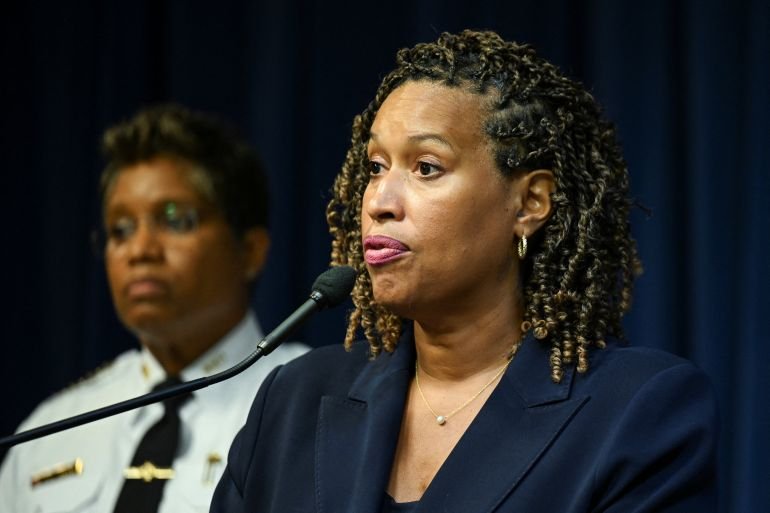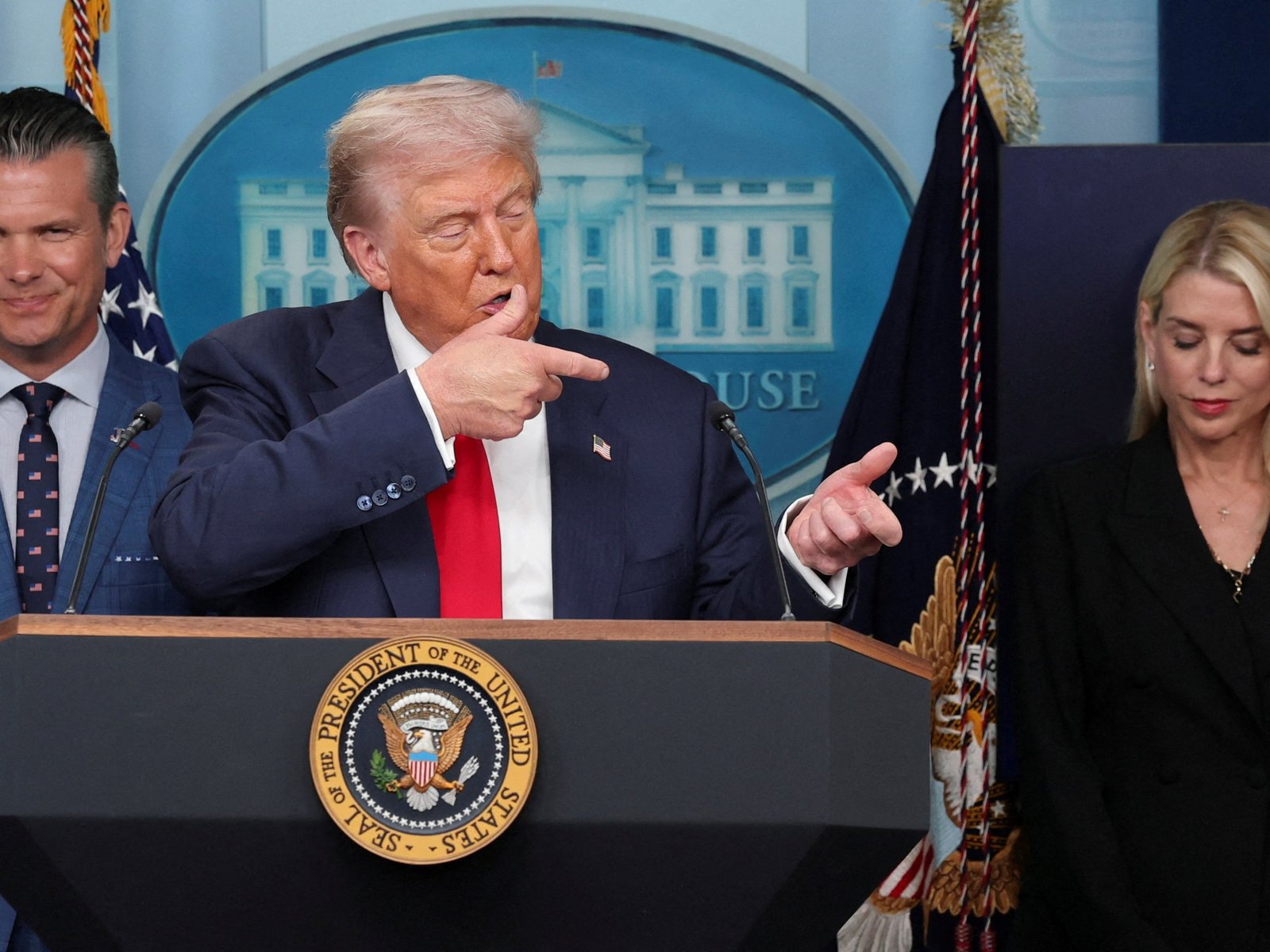President Trump Takes Federal Control of DC Police amid Crime Surge Concerns
In an unexpected move, President Donald Trump announced his decision to assume temporary control over the Washington, DC police department, alongside the deployment of 800 National Guard troops to the capital. This action, he claims, is necessary to “rescue” the city from increasing crime rates.
Notably, while Washington, DC saw a spike in violent crime in 2023, recent data indicates a significant decline in criminal activity since then.
Key Developments:
Federal Oversight of Police Operations
During a press conference that spanned 78 minutes, Trump declared the federal government’s intervention in the Metropolitan Police Department as a response to growing safety concerns. He expressed intentions to enforce order amid perceived chaos and deterioration.
“This is a historic step to reclaim our nation’s capital from bloodshed and disorder,” Trump stated, accompanied by US Attorney General Pam Bondi, who will oversee police operations during federal control. “We are taking back our capital!”
He invoked the Home Rule Act of 1973, which allows the President to assume control of city law enforcement under emergency circumstances.
National Guard Deployment
In conjunction with the police intervention, Trump outlined plans to deploy the National Guard to restore law and order within the city. “We’ll ensure they can fulfill their duties effectively,” he noted.
About 100 to 200 soldiers will support local law enforcement, focusing on a range of tasks from logistical support to providing a visible presence in targeted areas. It’s important to mention that these troops will operate under Title 32 status, which means they remain under local command while being federally funded.
Reactions from Local Leadership
DC Mayor Muriel Bowser asserted that the local government still maintains authority, emphasizing that the Chief of Police, Pamela Smith, and her team are in charge. “Nothing has changed in our organizational structure,” Bowser insisted.
Critics, including Bowser, argue that amplifying funding for prosecutors would yield more effective results in combatting crime than deploying the National Guard.
Crime Emergency Claims
Trump’s executive order points to an urgent emergency, citing rising violence as a significant threat to public safety. He labeled the District of Columbia as among the most dangerous areas in the country.
However, Bowser contended that crime rates in the capital are now at a 30-year low and assertively rejected Trump’s characterizations of DC as chaotic and lawless.
Recent data shows that violent crime in Washington, DC, fell significantly between 2023 and 2024, with preliminary statistics for 2025 indicating that this positive trend is continuing.
As tensions between federal and local authorities heighten, residents of Washington, DC remain watchful, awaiting the outcomes of these significant policy shifts.
Image Source: Annabelle Gordon/Reuters


